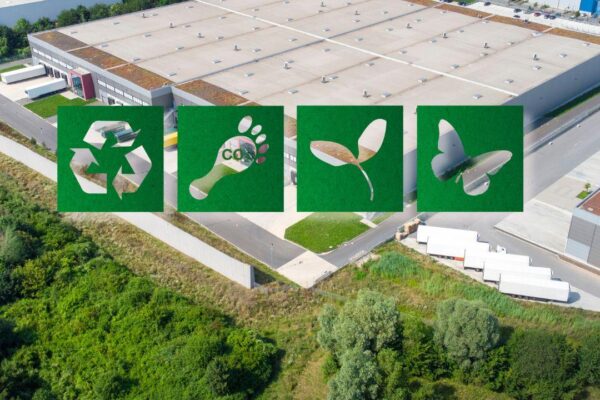Fast-Moving Consumer Goods (FMCG) companies are among the largest contributors to global emissions. It impacts global greenhouse gas (GHG) emissions approximately by 2.9 billion metric tons annually, with food production accounting for about 26% of global GHG emissions. Due to their extensive supply chains, high energy consumption, and mass production facilities, FMCG companies need to be more aware about the sustainable environment.

Read other article : Green Finance and How It Supports the SDGs
However, as consumers become more environmentally conscious, several FMCG companies are adopting green energy initiatives to reduce their carbon footprint. Green energy adoption in the FMCG sector includes investments in renewable energy sources such as solar, wind, and hydro power, as well as energy-efficient manufacturing processes. This article explores some leading FMCG companies that have embraced green energy and their efforts to create a more sustainable future.
Table of Contents
ToggleFMCG Unilever and Its Renewable Energy
One of the largest FMCG companies in the world, Unilever, has been a frontrunner in adopting sustainable energy practices. As its climate transition action plan, Unilever has committed to achieving net-zero emissions by 2039 and has made significant investments in renewable energy.
One of Unilever’s key initiatives is the use of biomass boilers in factories, which reduce reliance on fossil fuels. Additionally, the company has installed solar panels at various manufacturing plants to generate clean energy. Unilever’s commitment to sustainability is further demonstrated through its Sustainable Living Plan, which emphasizes reducing greenhouse gas emissions and transitioning to a circular economy.
FMCG Nestlé Investment for Greener Future
Another FMCG company that has made significant progress in incorporating renewable energy into its operations is Nestlé. The company aims to achieve net-zero emissions by 2050 and has been actively investing in wind, solar, and hydropower projects.
One of Nestlé’s major milestones in green energy adoption is its reliance on 100% renewable electricity in its factories across the U.S. and Europe. Nestlé has also developed partnerships with renewable energy providers to ensure that its supply chain remains environmentally friendly. The company has introduced low-carbon logistics solutions, such as electric vehicles for product distribution, and continues to explore innovative ways to reduce energy consumption in production facilities.
FMCG Procter & Gamble (P&G) Reduces Carbon Footprint
Not only Unilever and Nestle, Procter & Gamble (P&G) also has taken significant steps toward sustainability by adopting renewable energy sources and improving energy efficiency in its manufacturing operations. The company has set ambitious targets to achieve net-zero greenhouse gas emissions by 2040.
To achieve its target, P&G has invested heavily in wind energy, including a wind farm in Texas that supplies renewable electricity to its North American manufacturing sites. The company has also integrated solar power and biomass energy solutions in various plants worldwide. In addition to using renewable energy, P&G focuses on reducing energy consumption by implementing smart manufacturing techniques and optimizing supply chain operations.
FMCG Coca-Cola’s Beverage Production with Renewable Energy
Coca-Cola, one of the most recognizable brands in the world, has been actively working towards sustainability by adopting green energy solutions. Initiatives done by Coca Cola include commitment to reducing its carbon footprint by transitioning to 100% renewable electricity across its global operations.
In this case, Coca-Cola has invested in solar and wind energy projects to power its production facilities. In some regions, the company has also introduced hydroelectric power to support its manufacturing plants. The Coca-Cola system, which includes its bottling partners, has implemented energy-efficient refrigeration and distribution strategies to further minimize environmental impact. Through these initiatives, Coca-Cola aims to play a leading role in promoting renewable energy within the beverage industry.
FMCG PepsiCo’s Renewable Energy Investments
The next FMCG company that also adopts green energy is PepsiCo. This company has taken bold steps in adopting green energy as part of its sustainability strategy. The company has committed to using 100% renewable electricity across its global operations by 2030 and aims to achieve net-zero emissions by 2040.
Besides, PepsiCo has made significant investments in solar and wind energy projects to power its facilities. For example, the company has installed on-site solar panels at multiple manufacturing plants and signed renewable energy purchase agreements to source electricity from clean energy providers. Additionally, PepsiCo has focused on energy efficiency improvements, such as upgrading production equipment to reduce overall energy consumption.
The adoption of green energy by FMCG companies is a crucial step in addressing climate change and reducing the environmental impact of large-scale manufacturing. Leading companies like Unilever, Nestlé, Procter & Gamble, Coca-Cola, and PepsiCo have demonstrated their commitment to sustainability by investing in renewable energy sources and improving energy efficiency. As consumer demand for eco-friendly products continues to grow, FMCG companies must accelerate their green energy initiatives and set even more ambitious sustainability goals. The future of FMCG lies in sustainable practices that protect the planet while meeting the needs of consumers worldwide.
To adopt green energy into companies operations, it is not something impossible, especially now we have Satuplatform, which can help companies to consult its environment and carbon reduction initiative. Try the FREE DEMO now!
Similar Article
Low GHG Emission, High Impact: Everyday Materials That Could Reshape Green Manufacturing
The shift toward sustainable production practices has spurred growing interest in low-carbon materials that support greener industrial processes. Emerging materials,…
Does “Eco-friendly” Labels Mean Green Product in Green Industry?
Businesses and consumers alike are navigating a flood of products claiming to be “eco-friendly” or “green.” These labels, often used…
Dilema Biomassa: Transisi Energi Berkelanjutan atau Perusakan Lingkungan?
Dalam upaya mencapai target net-zero emission pada 2060, Indonesia mendorong transisi energi dari bahan bakar fosil ke sumber energi terbarukan.…
Energi Terbarukan di Indonesia: Mengapa Surya dan Hidro Menjadi Pilihan Utama?
Sebagai negara kepulauan terbesar di dunia, Indonesia menghadapi tantangan besar dalam memenuhi kebutuhan energinya. Di tengah komitmen untuk mencapai net…
Emisi Karbon Penerbangan Meningkat: Tantangan Baru bagi Industri Aviasi
Emisi Karbon Sektor Penerbangan Setelah mengalami penurunan drastis selama pandemi COVID-19, industri penerbangan global kini menunjukkan pemulihan yang signifikan. Namun,…
Adaptasi Bisnis di Era Krisis Energi
Pasokan bahan bakar menjadi semakin terbatas, dengan harga yang melambung tinggi, merupakan salah satu bukti bahwa dunia sedang mengalami krisis…







